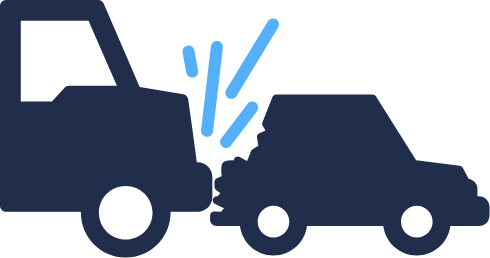The Ultimate Guide: Assessing the Quality of Motor Vehicle Accident Leads

Understanding the Basics of Motor Vehicle Accident Leads
Motor vehicle accident leads are often an important consideration for law firms that specialize in motor vehicle accidents and related areas. Motor vehicle accident or MVA leads might be initial contact information and details of potential clients who have been involved in motor vehicle accidents and might require legal assistance. These leads are crucial to many legal firms that handle accident cases, and can even compose the foundation of their client base.
Definition and Importance of Motor Vehicle Accident Leads
A motor vehicle accident lead is a prospective client who has expressed interest in legal services following a vehicle accident. These leads are significant because they represent a primary channel through which law firms can connect with individuals in need of representation.
The Role of Motor Vehicle Accident Leads in Legal Services
These leads serve as a bridge between the affected parties and legal professionals. They enable lawyers to provide timely legal intervention, which can be crucial for the resolution of claims and legal disputes arising from accidents.
Common Sources of Motor Vehicle Accident Leads
Leads can come from various sources like online advertisements, referrals, social media, legal directories, and more. How leads are sourced can vary widely between firms, though many rely on common techniques. It’s important to remember that not all leads are equally viable for any business. Identifying and leveraging the right channels can significantly improve the quality of leads generated.
Key Factors for Assessing the Quality of Motor Vehicle Accident Leads
Importantly, assessing leads for viability can involve several steps. Let’s explore some of the factors that firms may take into account when assessing lead quality.
Relevance of the Lead Information Provided
The details provided in a lead should be relevant and actionable. This includes accurate contact information and a brief description of the accident, which are indispensable for initial assessment. Without relevant information, it can be difficult to act effectively.
Timeliness of the Lead Information Gathered
Time is of the essence in legal cases. More recent leads can be helpful in ensuring that the legal firm can take prompt action, which is often a critical factor in legal proceedings. While timely leads are not an absolute necessity, this can become a crucial factor in cases.
Legitimacy and Legal Compliance of the Lead
Ensuring that leads are obtained through ethical and legal means is non-negotiable. This safeguards the firm’s reputation and adheres to professional standards. This may involve maintaining a thorough familiarity with jurisdictional laws and regulations, as well as careful diligence in lead assessment and vetting.
Detailed Criteria for Evaluating Motor Vehicle Accident Leads
Match with Your Specialization and Service Area
It's essential that leads align with the firm’s area of expertise and geographical scope of services to ensure a viable potential client-attorney relationship.
Verification of Lead’s Accident Details
A thorough verification of the accident details helps in assessing the viability of the lead. This includes the circumstances of the accident and any reports or documentation supporting the claim. It’s important to take steps to ensure that you’re able to understand the incident.
Lead's Willingness to Take Legal Action
A lead should exhibit a clear intention to pursue legal action. This willingness is often reflective of the lead's overall quality and potential conversion into a client. After all, a prospective client who has no wish to become a client may be much less likely to seek your professional services.
Best Practices to Enhance the Quality of Motor Vehicle Accident Leads
Continuous Monitoring and Assessment of Leads
Constantly evaluating the leads helps in refining the acquisition process and filtering out low-quality prospects. Over time, you may be able to significantly improve the approach you take to lead analysis and assessment.
Use of Modern Technologies for Lead Generation and Tracking
Leveraging technology like CRM systems can enhance the efficiency and effectiveness of lead generation and management. By utilizing the technology available to your firm, it may be possible to identify a wider range of opportunities as they arise.
Training and Development for Staff Involved in Lead Generation
Well-trained staff are more adept at identifying high-quality leads and employing best practices in lead generation and assessment. This can be an important component in fostering an effective culture within the firm that favors careful lead assessment.
Overcoming Common Challenges in Assessing Lead Quality
Navigating Legal and Ethical Issues in Lead Generation
Staying informed and compliant with legal and ethical guidelines is imperative to maintain the integrity of the lead generation process. There are numerous ethical and legal guidelines by which law firms must abide in their marketing practices — including lead generation.
Dealing with Inaccurate or Misleading Lead Information
Implementing robust verification processes can mitigate the risks associated with inaccurate or misleading information. While things can move quickly surrounding motor vehicle accidents, the importance of accurate, carefully vetted, information is difficult to overstate.
Coping with High Volume of Leads and Quality Assessment
Developing a systematic approach to quickly and efficiently assess the leads can help in managing large volumes without compromising on quality.
Case Concept: Successful Assessment and Utilization of Accident Leads
Let’s take a look at a theoretical scenario in which optimizing the assessment of leads could help a firm achieve more desirable outcomes.
Let’s suppose that Law Firm A has a problem; the leads they’re generating aren’t high quality. What does this mean? Remember some of the assessment factors that we’ve discussed. These could be leads that are outside of an optimal timeframe for taking legal action, leads that don’t show a clear interest in pursuing legal action at all, or leads that pertain to cases outside of Law Firm A’s area of expertise.
So, what might Law Firm A do? Here is where assessment comes in. Through assessing leads for the factors that we’ve discussed, Law Firm A may be able to more effectively pursue cases that prove to offer better alignment between their capabilities and area of expertise and the actionable needs of their clients.
Conclusion: Pulling It All Together – Necessity of Evaluating Motor Vehicle Accident Lead Quality
Evaluating the quality of motor vehicle accident leads is not just about improving the numbers; it's about building a reputable practice that can genuinely serve the needs of those affected by motor vehicle accidents.
Frequently Asked Questions:
Q: What makes a motor vehicle accident lead "high quality"?
A: High-quality leads are those that are relevant, timely, and have a high likelihood of converting into active cases based on the criteria discussed.
Q: How can I ensure legal compliance while gathering motor vehicle accident leads?
A: Legal compliance can be ensured by staying updated with the latest regulations, using compliant lead generation methods, and maintaining transparent practices.
Q: What steps can I take to improve the quality of motor vehicle accident leads my firm is getting?
A: Improving lead quality can involve refining targeting strategies, enhancing lead verification processes, and continuously training staff.
How can I optimize direct mail campaigns for better lead generation?
To optimize direct mail campaigns, segment your audience, personalize your messaging, and follow up promptly.
The viability of different MVA leads for one’s firm specifically, can vary wildly. As such, it can be important for law firms to better understand how they can assess the quality of the leads that they come across. Some of the factors that law firms may consider include but are not limited to the verification of lead details, the match of the lead to the firm’s area of expertise or specialty, and the legitimacy of a lead in question.
If you’re looking to transform your law firm’s approach to lead generation, don’t hesitate to reach out; at Legal Growth Marketing, we’re here to help firms like yours. Schedule a meeting and get in touch today.



